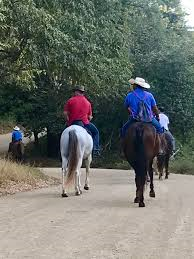I knew that William was a potential superstar the moment we started talking. He was smart and funny and confident – real confidence, not bluster.
He wasted no time establishing himself as a valuable employee. He then worked in overdrive till he was put in charge of his own product line. He hired and trained a crew that grew that product line into one that was contributing nicely to the company’s overall profits.
As CEO of his division, William made a six-figure salary plus a bonus of 10% of the profits. As his business grew, the bonus was increased to 20%. And as part of his contract when he made CEO, he was also promised 20% of the purchase price if his division were ever sold.
Some years later, the division stopped growing. And because I had an interest in the business, I was called in by my partners to speak to William about it. He was gracious and appreciative of my concerns, but he ignored my suggestions. He was comfortable with the division running at that level of profitability.
I’m not comfortable with an idling business. Unless you are seeking to grow profits, entropy takes over and sales gradually recede (along with everything else). But when William’s sales began to recede, he didn’t seem bothered.
I was bothered. And my partners were bothered. So when an offer was made to buy William’s division, they thought: good timing. To be fair to William, I recommended that we allow him to have a voice in the negotiating process. That proved to be problematic, as he had an unrealistically high idea of what the division was worth.
Eventually, it was sold at the right price. And William received, as promised in his contract, 20% of the purchase price.
Instead of feeling good about it, he shocked us by asking for 40%. His rationale was that he deserved an additional 20% of the profits because, in his role as CEO, he had somehow “earned” an extra 20% in “sweat equity.”
“Sweat equity” is a term that is sometimes used with start-up companies. To persuade a CEO (or other key executive) to work for a salary much below market rates, they are offered the chance to receive equity as a trade-off. For example, instead of paying Sally the $150,000 she would normally make, she is paid $50,000 and receives (after the year ends) $100,000 worth of equity.
That is how sweat equity works. It is a deal the two parties make beforehand. And it is not merited simply because someone works hard or successfully. It is essentially bought with the compensation that the executive willingly gives up.
When both parties agree to it, it’s fair. What William was asking for was, in our view, completely unfair.
I’ve always said that what is fair in a business relationship is relative. It’s relative to the people involved and to the situation, which is always changing.
If, as things change, your view of fair is in a range that doesn’t overlap with mine, we have a problem. Sooner or later (in William’s case, later), we will be at odds. And because our views of fairness are so different, there is a good chance the relationship will be ruined.
If you are entering into a long-term business relationship – whether it be a partnership, a joint venture agreement, or an employment contract – it’s not enough to agree on terms and to put those terms on paper. You have to spend some time talking about how the terms might change in the future.
My partners and I never did this with William. We just assumed, since he shared our views on so many other things, that he shared our sense of what fairness would look like as his role in the business became more important.
Had we done so, we might have realized that, for one thing, he had a very peculiar idea about meriting sweat equity based on his own assessment of his work. READ MORE



